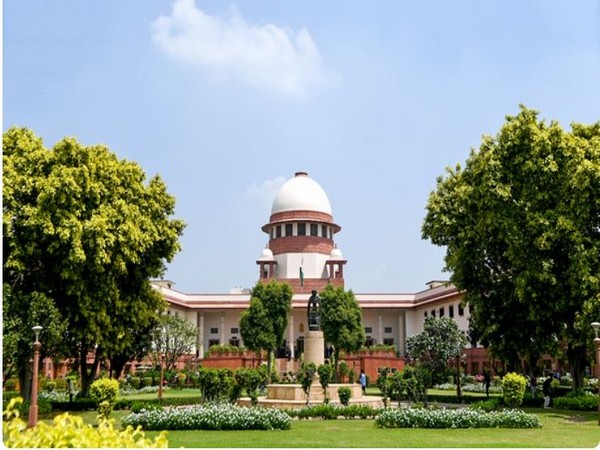Final resolution signed by Collegium to be published on Supreme Court website: Apex Court
The Supreme Court on Friday said the final resolution drawn and signed by the members of the Collegium is required to be published on the apex court website.

- Country:
- India
The Supreme Court on Friday said the final resolution drawn and signed by the members of the Collegium is required to be published on the apex court website. A bench of justices MR Shah and CT Ravikumar make this remark while rejecting the plea filed by RTI activist Anjali Bhardwaj's seeking a copy of the agenda, a copy of the decisions, and of the resolution of a 2018 Collegium meeting, clarifying that only a resolution drawn and signed by all the Collegium members can be said to be the final decision.
The court, while refusing to entertain the plea filed by the RTI activist, said, "Only after the final resolution is drawn and signed by the members of the Collegium, which is always after completing the due procedure and the process of discussion or deliberations and consultation, the same is required to be published on the Supreme Court website as per the resolution of October 3 in 2017." "There is no substance in the present Special Leave to Appeal and the same deserves to be dismissed and is accordingly dismissed," the court said.
The court also said that no reliance can be placed on the news report and some articles in the media. "What is required to be seen is the final resolution which is ultimately drawn and signed by the members of the Collegium," the court said. The petitioner had said that in the Collegium held on December 12 in 2018, some decisions were taken on the elevation of two Chief Justices of the high courts to the Supreme Court.
"However, from the subsequent Resolution passed by the Collegium on 10.01.2019, it appears that as such no final decision was taken on the elevation to the Supreme Court. Some discussions might have taken place. But unless and until, a final decision is taken after due consultation and on the basis of such a final decision a final resolution is drawn, whatever discussions had taken place cannot be said to be a final decision of the Collegium," the court said. "The actual resolution passed by the Collegium only can be said to be a final decision of the Collegium and till then at the most, it can be said to be a tentative decision during the consultation," the court said.
A final decision is taken by the Collegium only after due consultation. During the consultation, if some discussion takes place but no final decision is taken and no resolution is drawn, it cannot be said that any final decision has been taken by the Collegium. Collegium is a multi-member body whose decision is embodied in the resolution that may be formally drawn up and signed, the court made it clear.
"When in the subsequent Resolution dated January 10 in 2019, it is specifically mentioned that in the earlier meeting held on December 12 in 2018 though some decisions were taken but ultimately the consultation was not completed and concluded and therefore, the matter was adjourned," the court said. Therefore, as no final decision was taken which culminated into a final resolution drawn and signed by all the members of the Collegium, the same was not required to be disclosed in the public domain and that too under the RTI Act, the court ruled.
"Whatever is discussed shall not be in the public domain. As per the resolution dated October 3 in 2017, only the final resolution and the final decision is required to be uploaded on the Supreme Court's website," the court held. The petitioner Anjali Bhardwaj, who was represented by advocates Prashant Bhushan and Ria Yadav, challenged the order dated July 27, 2022, of the Delhi High Court, which dismissed his plea for information under the Right to Information Act.
According to the petition, the resolution of the subsequent meeting affirms that there was indeed an agenda of the previous collegium meeting of 2018 meeting and further that certain decisions were indeed taken and this was also affirmed through the public statements of Justice (Retd.) Madan Lokur and the statements made in the autobiography written by former Chief Justice of India, Ranjan Gogoi (who were both members of the collegium as of 12.12.2018). In such circumstances, it cannot be held that the information does not exist, the petitioner said. (ANI)
(This story has not been edited by Devdiscourse staff and is auto-generated from a syndicated feed.)
ALSO READ
Indian Ambassador Ruchira Kamboj condemns humanitarian crisis resulting from Israel-Hamas conflict
Indian Ambassador Ruchira Kamboj condemns the humanitarian crisis resulting from Israel-Hamas conflict
Saudi Arabia echoes India's stance on Kashmir in joint statement with Pakistan
Indian stock indices open at fresh highs; inflation data, Q4 earnings now in focus
Amit Shah set to address rally and participate in roadshow in Assam tomorrow










